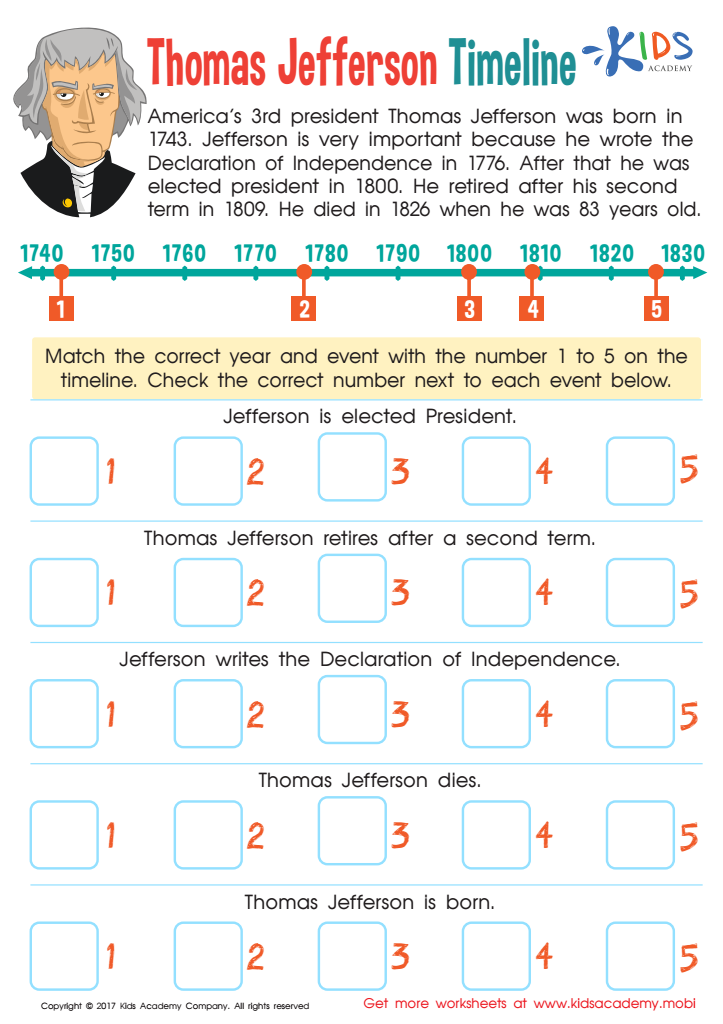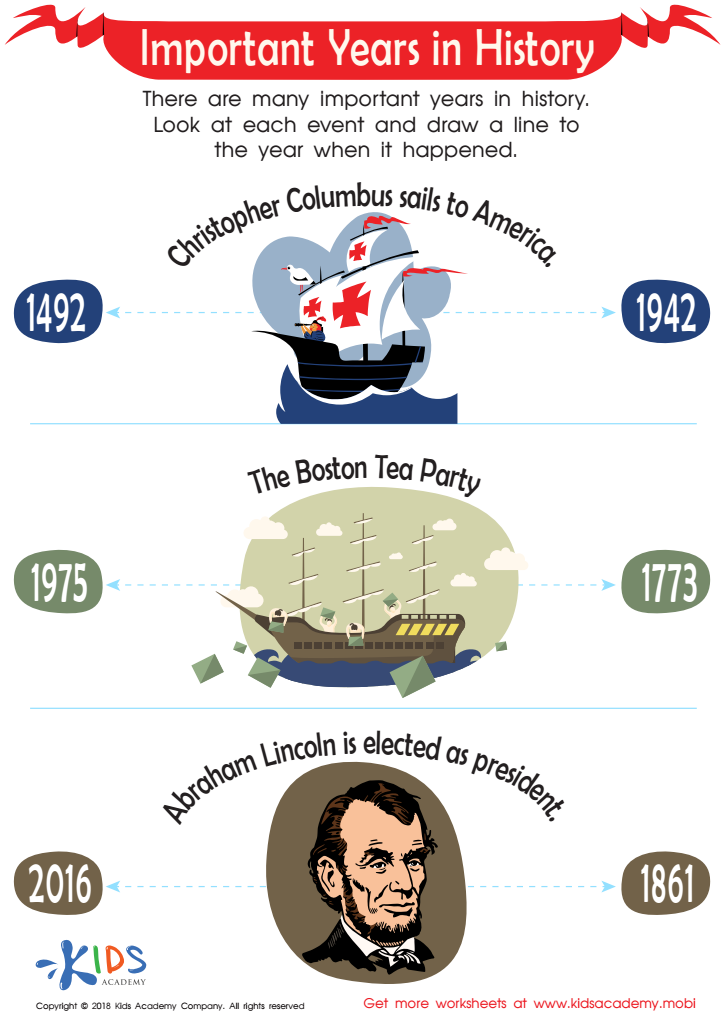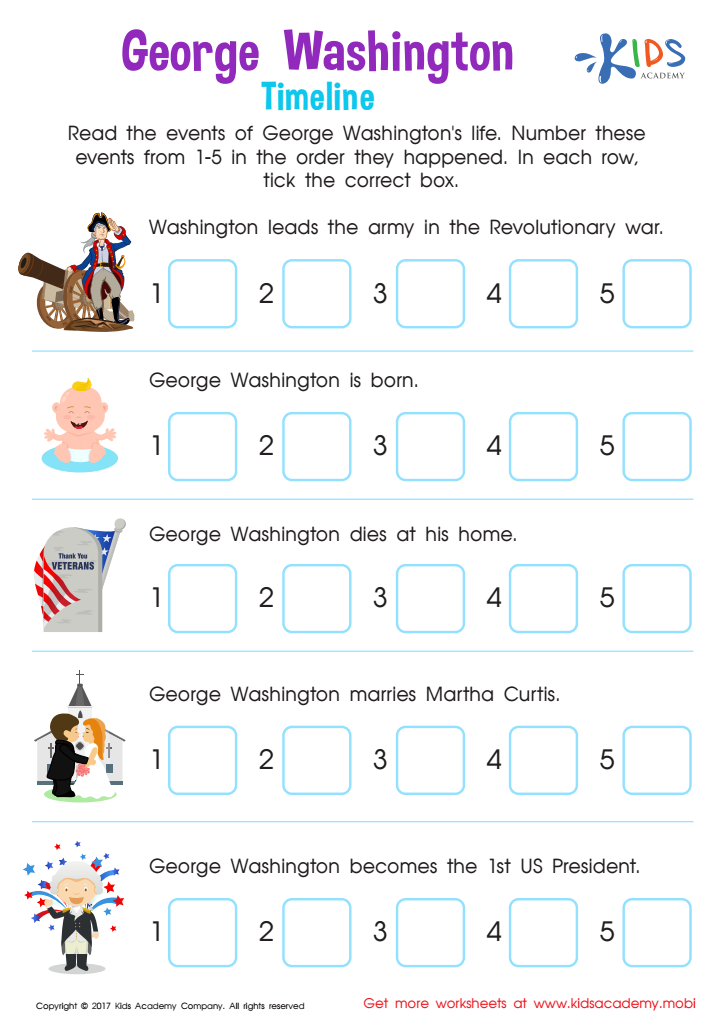Event sequencing History Worksheets for Ages 6-9
3 filtered results
-
From - To
Explore our engaging Event Sequencing History Worksheets designed for children aged 6-9! These worksheets help young learners develop critical thinking skills by practicing the important skill of sequencing events in history. Through fun activities, children will comprehend timelines, understand cause and effect, and enhance their narrative skills. Our user-friendly resources are aligned with educational standards, making them ideal for home or classroom use. Encourage your child's curiosity about the past while they enhance their reading and comprehension abilities with our captivating worksheets. Download now and inspire a love for history through interactive learning experiences tailored just for them!


Thomas Jefferson Timeline Worksheet


Important Years in History Worksheet


George Washington Timeline Worksheet
Event sequencing history is crucial for children aged 6-9 as it lays the foundation for critical thinking, comprehension, and storytelling skills. At this age, children are developing their ability to understand and organize information logically, and recognizing the order of events helps them make sense of the world around them.
For parents and teachers, fostering an understanding of event sequencing enhances literacy skills. Children learn to identify the beginning, middle, and end of stories, improving their reading comprehension and narrative skills. This understanding translates to their writing as they learn to structure their thoughts coherently.
Moreover, event sequencing is integral to building problem-solving abilities. By practicing sequencing, children learn to analyze relationships between events, which is essential for scientific reasoning and daily decision-making. Teachers and parents can encourage this learning through storytelling, games, and discussions that emphasize cause and effect.
Finally, mastering event sequencing boosts children's social skills by helping them to articulate their own experiences and understand others’ perspectives. Consequently, parents and teachers should prioritize event sequencing activities as they nurture well-rounded, critical thinkers ready to engage with the complexities of both academic and personal narratives.
 Assign to My Students
Assign to My Students




















